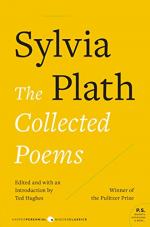|
This section contains 314 words (approx. 1 page at 400 words per page) |

|
Tulips Summary & Study Guide Description
Tulips Summary & Study Guide includes comprehensive information and analysis to help you understand the book. This study guide contains the following sections:
This detailed literature summary also contains Quotes and a Free Quiz on Tulips by Sylvia Plath.
The following version of this poem was used to create this guide: Plath, Sylvia. “Tulips” Poetry Foundation, https://www.poetryfoundation.org/poems/49013/tulips-56d22ab68fdd0.
Note that all parenthetical citations within the guide refer to the lines of the poem from which the quotations are taken.
Born in 1932, Sylvia Plath demonstrated from a young age a vast literary and artistic talent. She published her first poem in the Boston Herald children’s section when she was just eight years old. She is known for her poetry collections, The Colossus, which was published in 1960, and Ariel, which was published in 1965 three years after Plath’s death by suicide. "Tulips" is included in this posthumous collection. In 1963, the year of her death, Plath first published The Bell Jar, her famous semi-autobiographical novel exploring her lifelong struggles with depression, suicide, and mental health.
According to Plath’s husband, Ted Hughes, from whom she had separated at the time of her death, Plath wrote 1961’s “Tulips” while she was recovering from an appendectomy in the hospital. She was inspired by flowers she received as a gift. However, the contents and themes of the poem and the emphasis on the hospital’s physically and psychologically sanitary environment also draw from Plath’s personal experiences with psychiatric care resulting from her struggles with depression.
In poetry, the reader should be careful not to equate the poetic persona with the poet, even if the poet’s writing is in first-person. But “Tulips” and much of Plath’s other poetry are exceptions to this rule. Plath is known for writing confessional poetry, a style that focuses on the author’s subjective experiences and emphasizes the intense experiences of “I” in relation to subject matter that frequently faces social stigma. Critics have therefore generally interpreted the speakers of Plath's more confessional poems to be iterations of Plath herself.
Read more from the Study Guide
|
This section contains 314 words (approx. 1 page at 400 words per page) |

|



